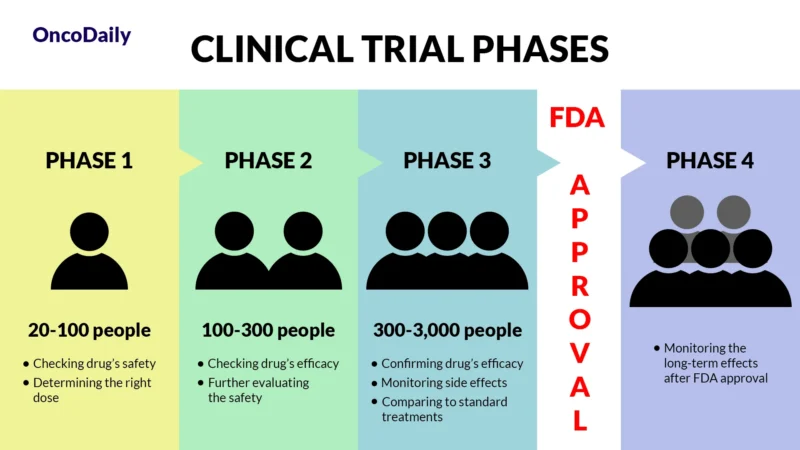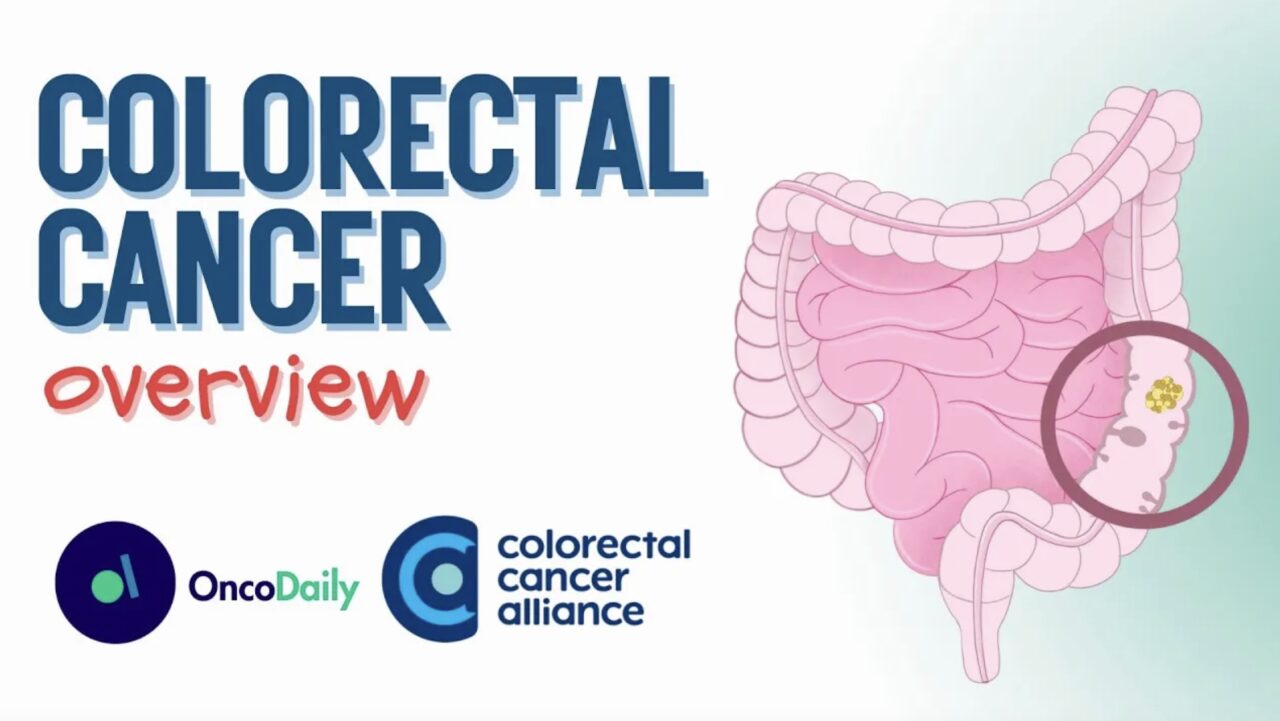
Tucatinib (Tukysa): What patients need to know?
Tucatinib (brand name Tukysa) is a targeted cancer drug used to treat HER2-positive metastatic breast cancer and colorectal cancer. It is approved by the FDA and is particularly effective for patients whose cancer has spread, including to the brain. This article explains how Tucatinib works, its effectiveness, side effects, and what patients can expect from treatment.
What Is Tucatinib and How Does It Work?
Tukysa is a HER2-targeted tyrosine kinase inhibitor (TKI). Normally, cells rely on proteins like HER2 to regulate growth and division in a controlled manner. In some cancers, however, the HER2 protein becomes overactive, sending constant signals that lead to rapid and uncontrolled tumor growth. Tucatinib works by specifically blocking the HER2 protein. By inhibiting these signals, it slows down or even stops the growth of the tumor.
Because Tukysa targets only HER2 and not similar proteins such as EGFR, patients tend to experience fewer side effects like severe diarrhea or skin rashes, making the treatment easier to manage while effectively combating the cancer. It works by blocking HER2, a protein that fuels the growth of certain cancers. HER2-positive cancers grow faster because of an overactive HER2 protein, but Tucatinib helps slow or stop tumor growth by blocking its signals. Unlike some other HER2 inhibitors, Tucatinib does not affect EGFR.
What Cancers Does Tucatinib Treat?
Tucatinib is FDA-approved for:
- HER2-positive metastatic breast cancer, including cases that have spread to the brain. It is used with trastuzumab (Herceptin) and capecitabine in patients who have already received other anti-HER2 treatments.
- HER2-positive metastatic colorectal cancer (mCRC) that is RAS wild-type. It is combined with trastuzumab for patients whose cancer has progressed despite chemotherapy.

Learn more about Breast Cancer: Symptoms Causes, Stages, Diagnosis and Treatment on OncoDaily.
What Is a Clinical Trial and Why Does It Matter?
A clinical trial is a research study designed to test new drugs and treatments in patients to determine their safety and effectiveness. Before Tukysa was approved, it went through multiple phases of clinical trials to assess how well it worked, what side effects it caused, and whether it was better than existing treatments. Clinical trials are essential because they provide scientific evidence that a drug can help patients while ensuring it is safe for widespread use.

What Does FDA Approval Mean?
When a drug receives FDA approval, it means that after rigorous testing in clinical trials, it has been shown to be both safe and effective for treating a specific condition. This approval makes the drug widely available for doctors to prescribe and helps patients access new, cutting-edge treatments sooner.
How Effective Is Tucatinib? (Clinical Trial Results)
Tukysa has demonstrated significant effectiveness in treating HER2-positive breast and colorectal cancers, particularly in patients with advanced disease. Clinical trials have highlighted its ability to improve survival, reduce tumor progression, and offer hope even for those with brain metastases.
Tucatinib for HER2-Positive Breast Cancer (HER2CLIMB Trial)
The HER2CLIMB trial evaluated the impact of Tucatinib in combination with trastuzumab and capecitabine for patients with HER2-positive metastatic breast cancer, including those whose cancer had spread to the brain. The results were promising.
After one year of treatment, 33.1% of patients receiving Tucatinib alongside trastuzumab and capecitabine experienced no progression of their cancer, compared to just 12.3% in the placebo group. These findings indicate a substantial improvement in disease control.
Long-term benefits were also observed. After two years, 44.9% of patients treated with Tukysa were still alive, whereas only 26.6% of those in the placebo group survived. Notably, patients with brain metastases also benefited, as the drug significantly slowed disease progression and improved overall survival, offering a critical treatment option for this challenging condition.
Tucatinib for HER2-Positive Colorectal Cancer (MOUNTAINEER Trial)
The MOUNTAINEER trial explored the effectiveness of Tucatinib in combination with trastuzumab for patients with HER2-positive colorectal cancer that had become resistant to standard chemotherapy.
The study found that 38.1% of patients experienced tumor shrinkage, demonstrating Tucatinib’s strong anti-cancer activity even in those who had exhausted other treatment options. Importantly, the combination therapy was well tolerated, with diarrhea and high blood pressure being the most commonly reported side effects. However, most patients were able to continue treatment without significant issues, highlighting its manageable safety profile.
Ongoing Research: What Other Trials Are Exploring Tucatinib?
Researchers are investigating Tucatinib in new combinations and cancer types:
- Tucatinib + Trastuzumab Deruxtecan (T-DXd): A promising combination in HER2-positive cancers.
- Tucatinib + Immunotherapy: Being studied to see if it improves immune system responses.HER2-mutated solid tumors: Ongoing trials are exploring
- Tucatinib beyond breast and colorectal cancers, including lung and biliary tract cancers.
What Can You Expect During Tucatinib Treatment?
Tukysa is an oral targeted therapy for HER2-positive breast cancer. Here’s what to know about taking it and how long treatment may last.
How Is Tucatinib Taken?
Tucatinib is an oral tyrosine kinase inhibitor used primarily in combination with other therapies for HER2-positive metastatic breast cancer. Proper administration is essential to maximize effectiveness while minimizing potential side effects. Below are key guidelines for taking tucatinib:
- Dosage: 300 mg twice daily (total daily dose: 600 mg).
- With or without food: Swallow tablets whole—do not crush or chew.
- If taking capecitabine: Take it within 30 minutes of a meal.
- Missed dose: Skip it—do not double up. Take the next scheduled dose.
How Long Does Treatment Last?
Tevimbra treatment continues as long as it remains effective and side effects are manageable. Patients typically receive the medication until their cancer shows signs of progression or if side effects become too severe to continue.
To track progress, doctors perform regular scans and blood tests, ensuring the treatment is working and monitoring for any potential complications. If necessary, adjustments—such as dose modifications or treatment pauses—may be made to help manage side effects while maintaining effectiveness.
Side Effects and How to Manage Them
Tukysa, like all cancer medications, may cause side effects. Knowing what to expect can help you manage them effectively.
Common side effects include diarrhea, which can be managed by staying well-hydrated, following a bland diet (bananas, rice, applesauce, and toast), and using antidiarrheal medications if prescribed. Hand-foot syndrome requires frequent moisturizing, wearing soft shoes, and avoiding excessive heat or friction. Nausea and vomiting can be minimized by eating small, frequent meals, avoiding strong odors, and taking anti-nausea medications as prescribed. Fatigue may improve with adequate rest, light exercise like walking, and maintaining a balanced diet. Liver enzyme elevation is monitored through regular blood tests, and dose adjustments may be necessary if abnormalities occur.
Less common side effects include anemia, which is monitored through blood tests, and in some cases, supplements or transfusions may be needed. Mouth sores can be managed with saline rinses, avoiding spicy or acidic foods, and practicing good oral hygiene. Skin rash may be alleviated by using mild, fragrance-free soaps and lotions, while antihistamines can help if itching occurs.
💡 When to Call Your Doctor?
If you experience severe diarrhea, uncontrolled nausea, extreme fatigue, yellowing of the skin (a sign of liver issues), or any new or worsening symptoms, contact your healthcare provider right away. By staying informed and proactive, you can better manage Tucatinib’s side effects and focus on your treatment. Always discuss concerns with your doctor for personalized advice.

What Should You Avoid During Tucatinib Treatment?
While taking Tucatinib, there are several things you should avoid to ensure the medication works effectively and safely:
- Certain Medications: Some drugs that affect the liver enzyme CYP3A can change how Tucatinib is processed in your body. Always check with your doctor or pharmacist before taking new medications, including over-the-counter drugs and supplements.
- Grapefruit and Alcohol: Grapefruit and grapefruit juice can interfere with how Tucatinib is absorbed, potentially making it less effective. Alcohol may also increase the risk of side effects like liver problems, so it’s best to limit or avoid it.
- Live Vaccines: Vaccines such as measles, mumps, rubella (MMR), and varicella (chickenpox) may not work as well during Tucatinib treatment. If you need a vaccine, consult your doctor first.
- Pregnancy and Breastfeeding: Tukysa can harm an unborn baby, so it should be avoided during pregnancy and for at least one week after stopping treatment. Breastfeeding is also not recommended during this time. Use reliable contraception to prevent pregnancy while on Tucatinib.
- Excessive Sun Exposure: Tucatinib may increase your skin’s sensitivity, leading to rash or sunburn. Protect your skin by wearing sunscreen, protective clothing, and avoiding prolonged sun exposure.
By following these precautions, you can reduce risks and help ensure that Tucatinib works as safely and effectively as possible.

You can read What 99% of people don’t know about Colorectal Cancer on Oncodaily.
What Is the Long-Term Outlook with Tucatinib?
Tucatinib is not a cure, but it extends survival and improves quality of life. Studies show that it helps patients live longer without cancer progression. If cancer progresses, doctors may explore other treatments, including clinical trials.
Tucatinib continues to show promise beyond its established indications, with emerging data supporting its potential in various HER2-driven cancers. In biliary tract cancer, a 2023 study reported a 46.7% response rate, highlighting a possible new application. The MoST study, presented at ESMO 2024, suggested that Tucatinib may benefit patients with HER2-mutant thyroid and colorectal cancers. A 2025 Nature Medicine study further demonstrated its effectiveness in HER2-mutated, HER2-negative breast cancer. Ongoing trials are now evaluating Tucatinib in lung cancer, brain metastases, and in combination with novel therapies, paving the way for expanded treatment options in the future.
Other HER2-Targeted Tyrosine Kinase Inhibitors
HER2-targeted tyrosine kinase inhibitors (TKIs) are a vital class of medications used to treat HER2-positive cancers, including breast cancer and gastric cancer. These drugs work by blocking HER2 signals, slowing cancer growth, and improving treatment outcomes.
- Lapatinib – A dual HER2/EGFR inhibitor, often combined with chemotherapy or hormone therapy. However, its effect on EGFR can lead to side effects like diarrhea and skin rash.
- Neratinib – An irreversible pan-HER inhibitor that blocks HER1, HER2, and HER4. While powerful, it requires proactive diarrhea management due to its strong impact on the digestive system.
- Pyrotinib – Widely used in China for HER2-positive breast cancer, this TKI is gaining attention for its effectiveness.
- Afatinib – Primarily used for EGFR-mutant lung cancer, but also shows activity against HER2 mutations, offering another potential treatment option.
These TKIs are especially beneficial for patients who develop resistance to monoclonal antibody therapies like trastuzumab (Herceptin) and pertuzumab (Perjeta).
In conclusion, Tucatinib is a promising targeted therapy for HER2-positive cancers, offering better survival and disease control, especially for patients with brain metastases. Talk to your doctor to see if Tucatinib is an option for your cancer type. If you are interested in clinical trials, your doctor can help you explore ongoing research.
If you’re a healthcare provider, access the professional version here.
Written by Mariam Khachatryan, MD
-
Challenging the Status Quo in Colorectal Cancer 2024
December 6-8, 2024
-
ESMO 2024 Congress
September 13-17, 2024
-
ASCO Annual Meeting
May 30 - June 4, 2024
-
Yvonne Award 2024
May 31, 2024
-
OncoThon 2024, Online
Feb. 15, 2024
-
Global Summit on War & Cancer 2023, Online
Dec. 14-16, 2023
